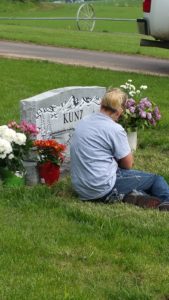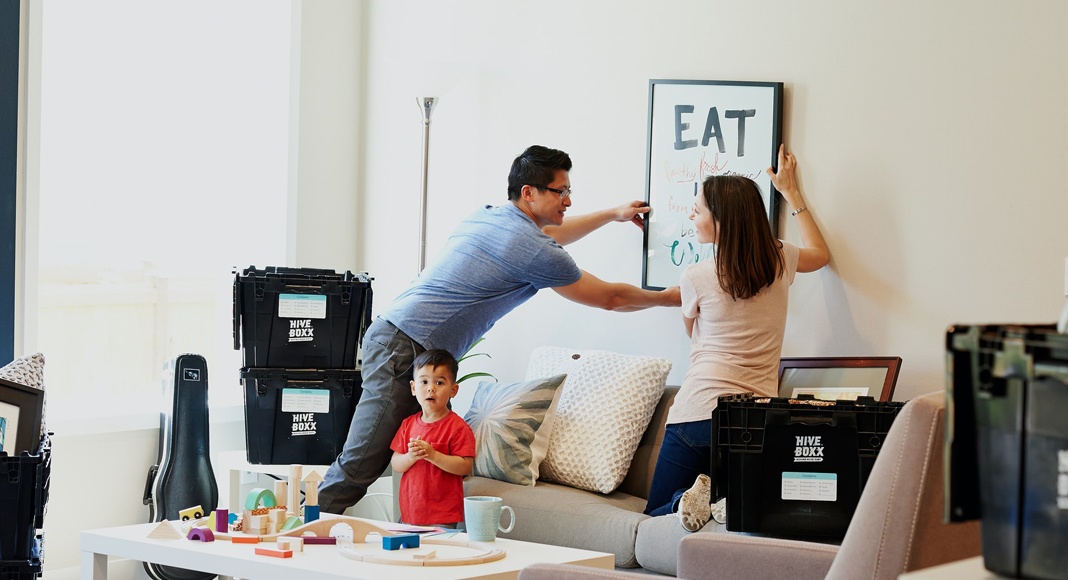As parents, we are constantly concerned about our child’s health and well-being. The same is true for our parent or parents, especially as they start to age. However, it is not always a parent or grandparent that passes. It may be a sibling, an aunt or uncle or even a classmate. As parents, it is our responsibility to help our children understand and cope with grief and death.
I lost my father 5 years ago. He was 79. There was not a definitive health issue, but heart attack is believed to be the cause. He was at home. My Mother’s phone call to me was as close to hysteria as I have ever heard my mom. I was at work and immediately began making calls. My oldest brother and his family live in Germany and I didn’t have their international number. So Facebook messenger to the rescue. I spoke to my brother and they started working on travel arrangements. Notifying my other brother who lives in the same town as I do involved numerous phone calls, including a sheriff’s office to see if they could locate them on their camping/fishing trip as they had no cell service. I already spoke with my husband and our discussion was about how to tell our daughter who was almost 14 at the time and was not home when we found out. She had already lost one grandpa on my husband’s side and a young cousin to cancer. She was younger, yet death has always been emotional for her as she is very empathic. My husband went and got her and told her as I was on my way home from work. Telling our daughter was difficult, emotional and filled with tears. Lots of hugs and then stories on the drive to my parents home.

When telling children about death:
-try to not let your grief over take the conversation
-be comforting
-it’s a shock for all, use simple terms
-answer any questions, but don’t rush through the answer,
-focus on the child.
You need to listen carefully and offer comfort and compassion. Each child reacts differently. Some will be very emotional and some may seem to have no reaction and both are okay responses.
Discuss with your child what will happen in the next few days. For us, it was planning and coordinating all travel and then planning the funeral once my siblings were there. Discuss the funeral and the rituals that occur depending on your family. During this time my daughter answered the phone and the door. This gave her a specific role and helped her to stay busy, along with getting to know all the extended friends and family she met. She listened and read as I wrote the life sketch and made phone calls to friends and extended family, and she also got to hear the stories that were too numerous to include in the life sketch. We sorted through photographs and slides to find for the video that would play during the viewing. She got to laugh along with us as the stories were told as we viewed the photographs and she cried with us also. We didn’t hide the grief from her or any of the grandchildren and great grandchildren. We offered comfort to them and talked at length about our family, yet didn’t let them dwell to long on sad emotions. We would talk about fun activities we could do like getting milkshakes from the corner drugstore that my Dad always stopped for after the funeral was over.

Afterwards, as life started to get back to normal, we continued to have discussions about our feelings of grief and sadness. Healing after a death, by no means equals forgetting! We continue to talk about all the memories. Grief is different for everyone, so it is important to understand that your child may have a harder time or it may even seem that they have moved quicker past the grief than you. There is no right or wrong with grief. Sometimes, it may be a little harder as a memory may come that reminds us all we no longer will experience that with them, so we focus on the happy activities we still can do that we know are in a sense in my Dad’s memory. I have learned that when we share our sadness it helps us all to talk and feel better. The activities and talks allow us to focus on the love we have for each other and those we have lost.












